Sometimes you think the Apocalypse doesn’t go away. It just takes new and frightful forms. No sooner was the lockdown over – even as Daniel Andrews was appropriating massive new powers to himself by Act of Parliament – than we found ourselves thinking we were in the opening scene of The Wizard of Oz and the window was going to fly off to nowhere in quiet Hawthorn, as trees were fallen, electricity wires were tumbling down, direly and dangerously, and we found ourselves without power or heating or hot water for four long late spring Melbourne days. And all this just as we were limbering up for a bit of lush and lavish live theatre, not glimpsed since early in the year.
Commercial theatre in the form of the long-awaited, long-postponed Moulin Rouge and classic theatre in the chocolate box form of Simon Phillips’ production of As You Like It with Christie Whelan-Browne as Rosalind. It’s arguably the greatest female comic role in the whole of Shakespeare’s dramatic canon and Whelan-Browne with her long legs and sumptuous looks and, more particularly, her Maggie Smith-like comic timing is quite a prospect in the role that has been played by everyone from Dame Edith Evans to Vanessa Redgrave to Bryce Dallas Howard (the daughter of director Ron Howard) in a 2006 Ken Branagh movie.
There are times, even when the Australian theatre is revving back to normal, when you do wish you were in London and the new Macbeth at the Almeida is one of them. It has James McArdle (the deacon in Mare of Easttown) as the Thane and Saoirse Ronan as his Lady. She’s the girl who became famous for Ladybird and went on to do Little Women and play Mary Queen of Scots.
A few years ago she was in Arthur Miller’s The Crucible for Ivo van Hove – about as big time a master of progessivist theatre as the world holds – and he said that it was astonishing how instinctively and how impeccably she had mastered the skills of a stage actress even though this was her debut. That production had Ben Whishaw as a slight and diminuative John Proctor in van Hove’s swerve away from typecasting of the Daniel Day-Lewis variety.
The film of The Crucible (streaming on Disney+) is a particular enigma because it’s the work of the stage director and former head of Britain’s National Theatre Nick Hytner and it has a performance by Paul Scofield as Judge Danforth so sepuchral in its studied majesty that you wonder if it’s not too big for the screen, that the grandeur of the acting (from the man who won an Oscar for A Man for All Seasons and was Peter Brook’s King Lear on stage and in the bleak stormy film shot in luminous black and white by Sven Nykvist, Ingmar Bergman’s cinematographer) is not too self-conscious.
It is interesting that the production of the Scottish tragedy is by the South African Yaël Faber, one of the most highly regarded directors alive, and the production she did of Miller’s witch hunt play set in the late seventeenth century Salem, Massachusetts, had some of us giving it five stars when we reviewed the National Theatre Live broadcast with Richard Armitage from Spooks as Proctor.
It does not have to be Hallowe’en, as it is now in this unlit house, to make you ponder the enigma of The Crucible. Arthur Miller’s play is famously an allegory of McCarthyism and it certainly presents the horrors not only of false accusation but the barbarism of religion gone beserk and vengeful.
Any contributor to Kevin Donnelly’s forthcoming anthology about Judeo-Christian civilisation finds himself or herself pondering the parable enunciated by that great German Jewish critic Walter Benjamin when he said that the history of civilisation was always at the same time the history of barbarism. As you watch The Crucible – not least when an actor such as Scofield lends the aura of sanctity to his performance – you are aware of the barbarism of a church that is like a hideous re-enactment of the Inquisition.
On the other hand, when Proctor and Goody Nurse and co. stand on the scaffold reciting the Lord’s Prayer you get the strongest and most moving sense of them as martyrs to truth and that they are Christian martyrs even though it’s a deranged and barbaric version of Christianity that condemns them.
James I – he of the King James Bible – was of course learned about witchcraft and Macbeth seems to have been written in part to stimulate this abiding fascination.
It would be fascinating to know how Saoirse Ronan delivers those two remarks of Lady Macbeth ‘Had he not resembled my father as he slept I had done it’ and then, so many sorrowful guilt-haunted days and nights later, the words that reverberate in the occluded madness of the sleepwalking scene, ‘Yet who would have thought the old man had so much blood in him’.
It’s interesting to see that a chunk of Shakespeare’s First Folio containing the text of Henry IV, Part 1 went on the market the other week.
This also coincides with the sale of a house in Italy that contains the only fresco by Caravaggio. Its market price is the highest in history, 471 million euros, and the current owner, Princess Rita Boncompagni Ludovisi, a Texan who’s worked for the Republicans and modelled for Playboy describes it as ‘a Caravaggio with a house thrown in’.
Caravaggio is a near contemporary of Shakespeare and his extraordinary chiaroscuro is arguably the most purely dramatic thing to have come out of Italian Renaissance painting.
Meanwhile the enterprising Bendigo Art Gallery has a new exhibition of Elvis memorabilia.
You don’t have to be any kind of Graceland fetishist to remember that extrordinary voice. Whether he’s rocking his way through ‘Hound Dog’ or ‘Jailhouse Rock’ or ensuring that ‘Love Me Tender’ and ‘Wooden Heart’ are among the greatest ballads of all time, Elvis Presley was an extraordinary magician of music and the fact that he turned into the bloated hulk of the Las Vegas days and later is just piteous beyond belief, as if something in America impelled it to impose this kind of squalid retribution on one of its more sunlit sons.
Got something to add? Join the discussion and comment below.
Get 10 issues for just $10
Subscribe to The Spectator Australia today for the next 10 magazine issues, plus full online access, for just $10.
You might disagree with half of it, but you’ll enjoy reading all of it. Try your first month for free, then just $2 a week for the remainder of your first year.

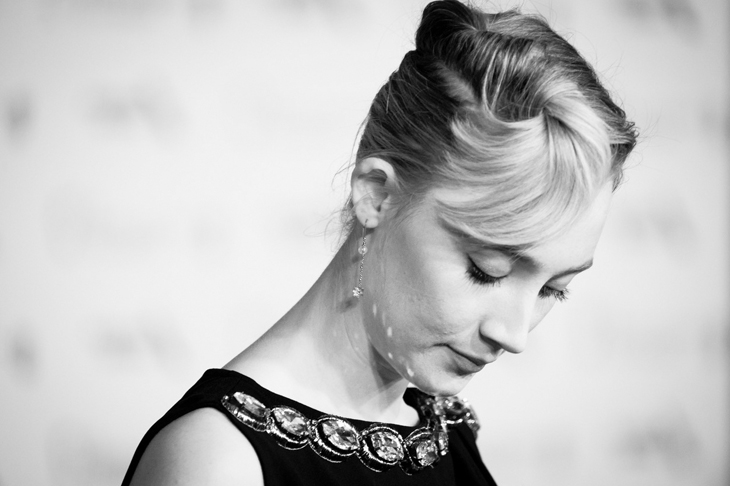
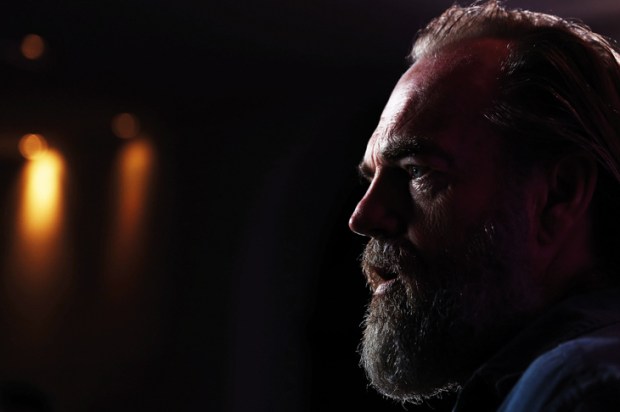
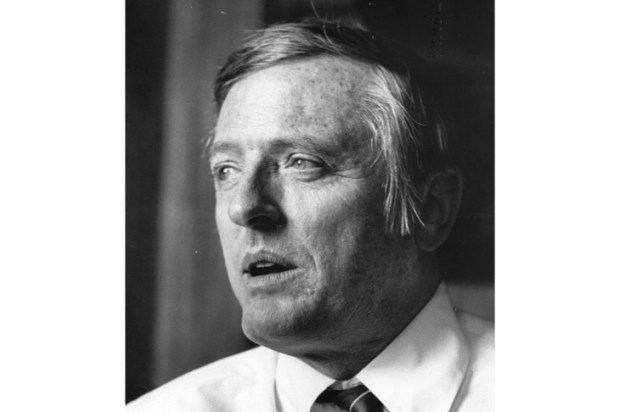
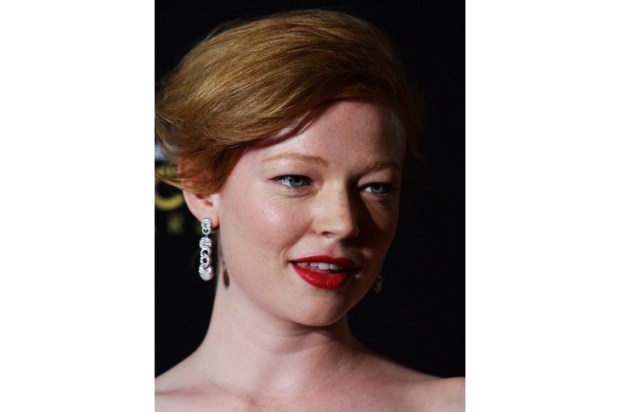

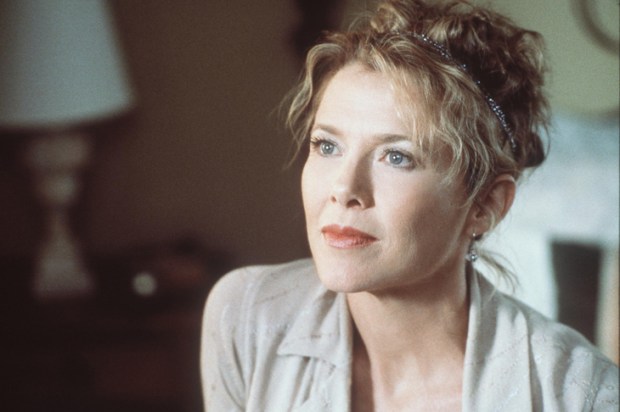







Comments
Don't miss out
Join the conversation with other Spectator Australia readers. Subscribe to leave a comment.
SUBSCRIBEAlready a subscriber? Log in